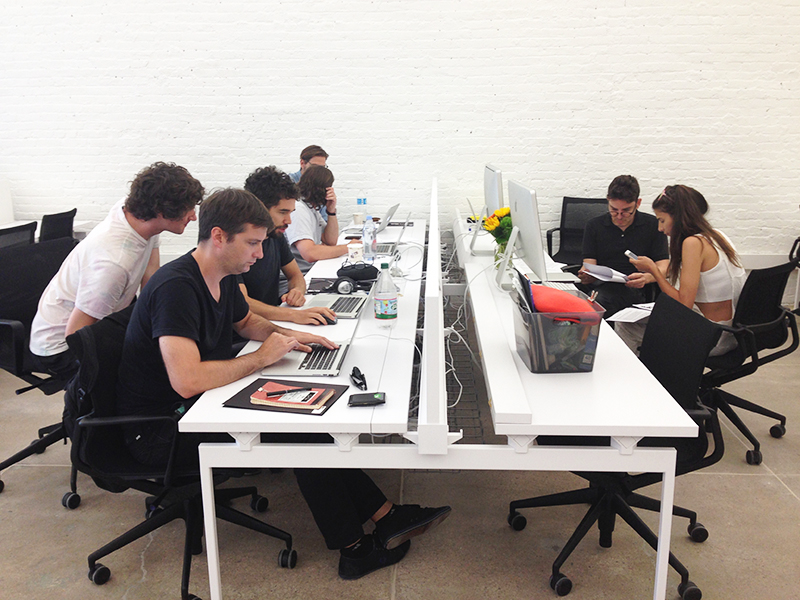
This is evidenced in the rise of design communities, makerspaces and collaborative projects. Over a third of the participants in our recent Audience Survey would rather fulfil a shared goal than achieve a personal one.
This spirit of sharing is also evidenced in people’s work habits. On graduating from university, people we surveyed expected the same easy-going atmosphere in the workplace as they experienced on campus.
Respondents valued their time and long-term goals over anything else, and would rather work at a start-up or multidisciplinary makerspace, where they can network, develop their skill sets and work on projects, than in a corporate office, with a traditional hierarchy.
“Today’s teenagers are going to graduate from school and college into a significantly different landscape than the one in which their parents began their careers,” explains Sara Feast, communications officer of the entrepreneurship division at the London School of Economics.
Incubator projects are proving successful, such as Colab and Space (London) and New Inc (New York), where creatives can benefit from peer-to-peer learning and attend workshops, lectures and events before launching their own project or product.
“When I was envisioning this space, I wanted it to be an ecosystem with a range of voices that were disparate but complementary and coming together,” explains New Inc’s director Julia Kaganskiy.
New platforms and services are helping to facilitate this collaborative mindset. Hoffice, allows freelance workers to connect with others in their area via a Facebook group, where they can arrange to work from someone’s home – a DIY version of otherwise pricey members’ clubs. “Creative camaraderie, talking things through, sourcing materials together and sharing vendors – these are all benefits of belonging to a community” Bernie Mitchell of 90 Mainyard, a co-working space in Hackney, London, with a holy trinity of community, collaboration and creativity as its guiding vision, sums up the benefits: “If you share everything, everything moves forward. Everything will connect and that’s better for everyone.”
Sharing this belief of many hands making light work is Lily + Skinner, a London-based collective of women who work in the catering industry. They share resources, CVs and advice, widely expanding the reach they’d each have individually.
As founder Emma Reynolds says, “We have people to celebrate success with and shoulders to cry on when things don’t go so well.” Colony, a cooperative design studio in New York, has a similar outlook. It aims to give emerging talent a platform where they can showcase work.
“Creative camaraderie, talking things through, sourcing materials together and sharing vendors – these are all benefits of belonging to a community,” says founder Jean Lin.


